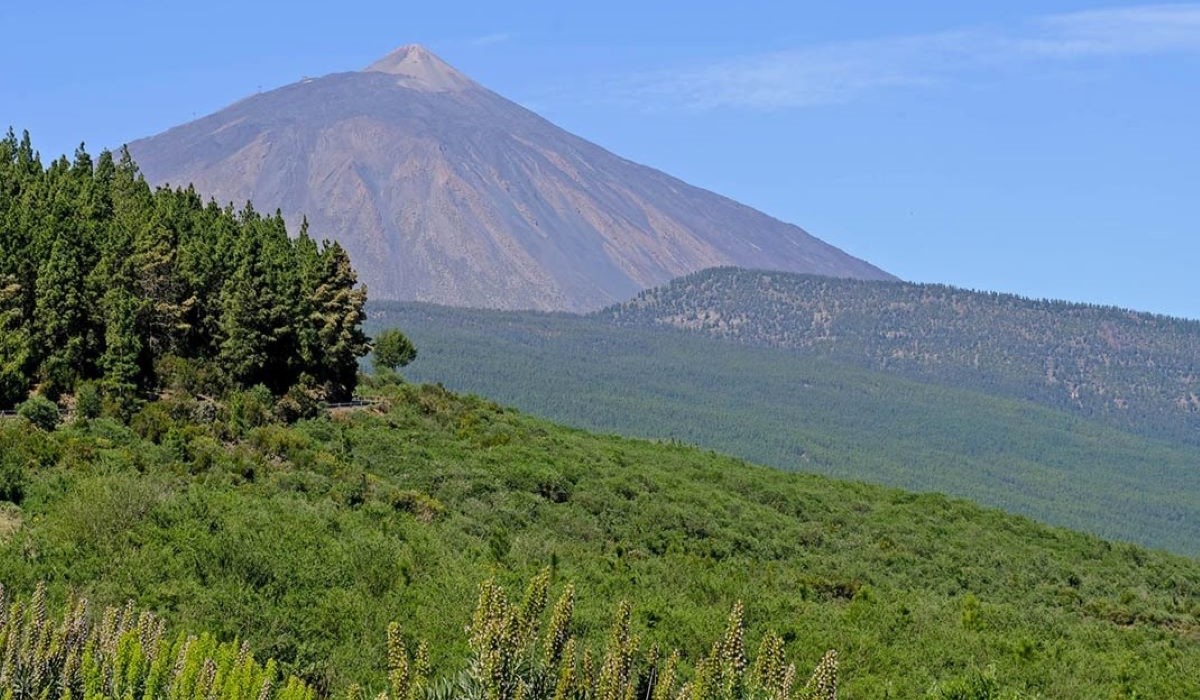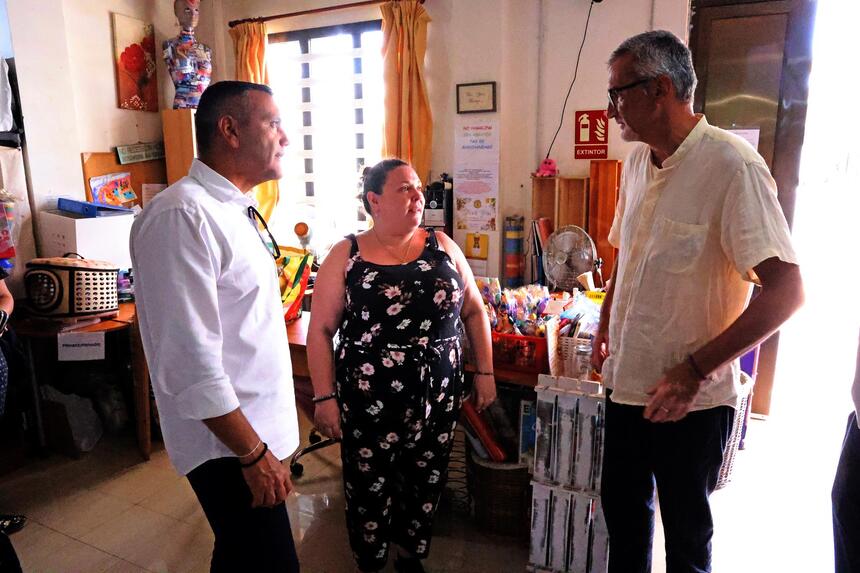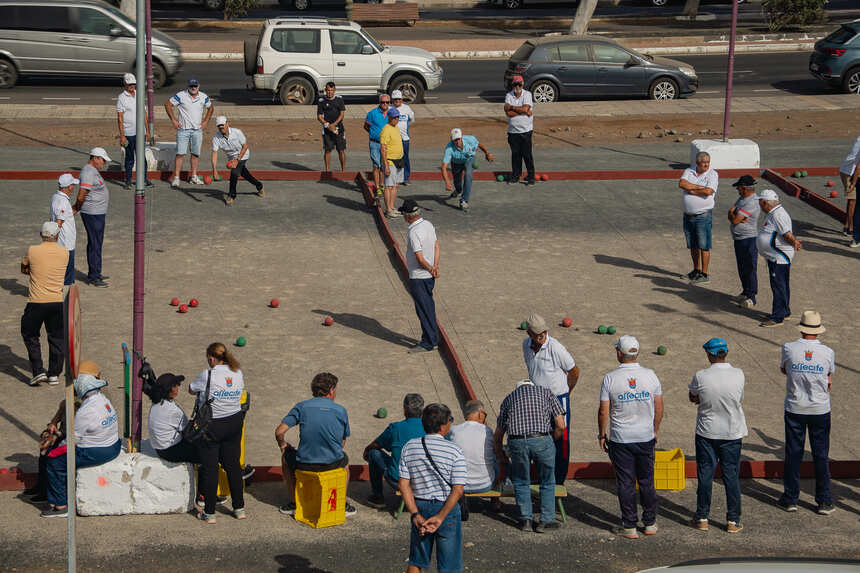
The Government of the Canary Islands has submitted a proposal to the European Commission, calling for a “significant” increase in both material and human resources for the deployment of the European Border and Coast Guard (Frontex) across the archipelago.
Increased European Presence Required
“We demand a greater presence of decision-making from the regions, of Frontex personnel (…), and a stronger involvement of European institutions in cooperation and development policies to manage a continuing flow of migration,” asserted President Fernando Clavijo in statements to the media.
In response to an open consultation by the Directorate General for Migration and Home Affairs aimed at updating the agency’s regulations, the regional government has proposed that Frontex enhance its presence in the islands using “aerial resources, vessels, radar, and other systems to improve maritime and border surveillance,” as stated in a press release from the regional government.
Strategic Deployment in the Islands
The objective is for the European Border and Coast Guard to sustainably and proportionally enhance its presence at “strategic points like the Canary Islands,” equipping itself with “resources adapted to the maritime environment and the geographical realities of the archipelago.”
To achieve this, the Canary Islands government sees it as “crucial” that the new regulation being prepared by Brussels includes the possibility of a “significant reinforcement of resources” in line with the scale of the migratory challenge faced by the islands.
Current Limitations and Needs
The regional government detailed that at present, Frontex teams in the Canary Islands limit themselves to operations in the various Temporary Attention Centres for Foreigners (CATE), assisting the National Police in the identification and interviewing of newly arrived migrants.
The Government of the Canary Islands has stressed that it has been requesting throughout this legislative term for Frontex to go “much further” and collaborate with the state in surveillance and rescue operations, not only on the Canary coasts but also in the migrants’ countries of origin.
However, they have noted that this request has been declined by the Ministry of the Interior to ask for the European agency’s collaboration, which is essential as communicated by the EU Commissioner for Home Affairs and Migration, Magnus Brunner, to President Fernando Clavijo during a meeting on January 21 in Strasbourg.
A Call for Broader Deployment
For this reason, taking advantage of the opportunity presented by the open consultation from Brussels, the regional executive is directly requesting that the new Frontex regulation includes a much broader deployment to control the dangerous Atlantic Route and save lives.
Further demands from the Canary Islands include that the EU’s operational arm in migration matters be allowed to participate in humanitarian management of migration issues and maritime rescue operations.
Specifically, the request is for the new Frontex regulation to incorporate “specific protocols” for coordination with national rescue services (such as Salvamento Marítimo in Spain), respecting state competencies but favouring “real operational cooperation.”
Humanitarian and Legal Frameworks
“The Canary Islands are a frequent point for search and rescue operations (SAR). Future regulations must ensure that Frontex not only operates in border control but also provides coordinated humanitarian support in accordance with International Maritime Law and fundamental rights,” the Canary proposal states.
The Canary Islands government’s response to the open consultation from the Directorate General for Migration and Home Affairs of the European Commission also calls for regions to have greater influence in decisions regarding Frontex’s operational deployment.
“Autonomous authorities have direct responsibilities in essential services (health, social services, etc.) and should be part of the operational planning of Frontex to ensure inter-institutional coordination,” the document emphasises.
Voices of the Affected Territories
Thus, they argue that giving a voice to regions facing migration pressure at the frontline will strengthen “the efficiency of the European border and return management system, from a specific territorial perspective, respectful of human rights, adapted to current challenges, and with more inclusive governance.”
Additionally, the Canary Islands request that Brussels include in the new Frontex regulation “a differentiated approach” for outermost regions like the Canary Islands, which “face particular challenges” regarding migration pressure, logistical capacity, and territorial vulnerability.
They insist that the ability to respond immediately and in coordination with Frontex is “crucial” for tackling the steady arrival of boats and rafts to the archipelago, especially after the significant increase on the Atlantic Route, with over 87,000 migrants arriving in the Canary Islands by sea in 2023 and 2024.
Addressing the Issue of Unaccompanied Minors
Notably, the document submitted to the European Commission highlights the “alarming” situation of unaccompanied migrant minors in the Canary Islands, with over 5,000 children currently housed alone in 82 facilities.
It also recalls that the recent “Annual Risk Analysis 2025-2026” report published by Frontex warns that migration pressure on the Canary Islands will remain high throughout 2025, due to factors including political and security deterioration in the Sahel, a humanitarian crisis in the region, Russian influence, the potential instrumental use of migration, and reductions in humanitarian aid.
Proposing Efficient Collaboration
To address this migratory pressure, the regional executive proposes that Brussels utilise the change in Frontex regulations to “promote a more agile and efficient approach in collaboration with third countries.”
“The European Union must strengthen its dialogue with the countries of origin and transit in West Africa from which the boats and rafts depart, to ensure Frontex’s presence in their territorial waters. This involves promoting bilateral agreements with these countries, supporting them in maritime surveillance operations,” they add.
The Canary Islands’ response to this open consultation also calls for the inclusion of specific content on fundamental rights in the training programme for Frontex staff, encompassing access to international protection and assistance for vulnerable individuals, including minors, unaccompanied minors, persons with disabilities, elderly people, and women potentially at risk of gender-based violence.
Agencies EP













